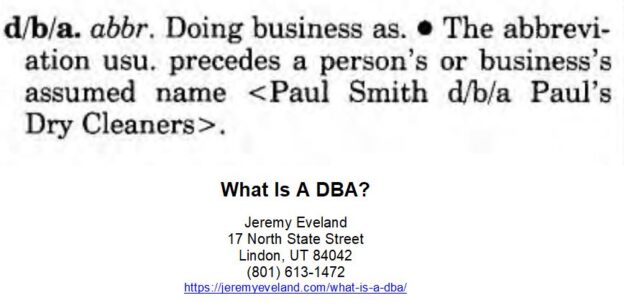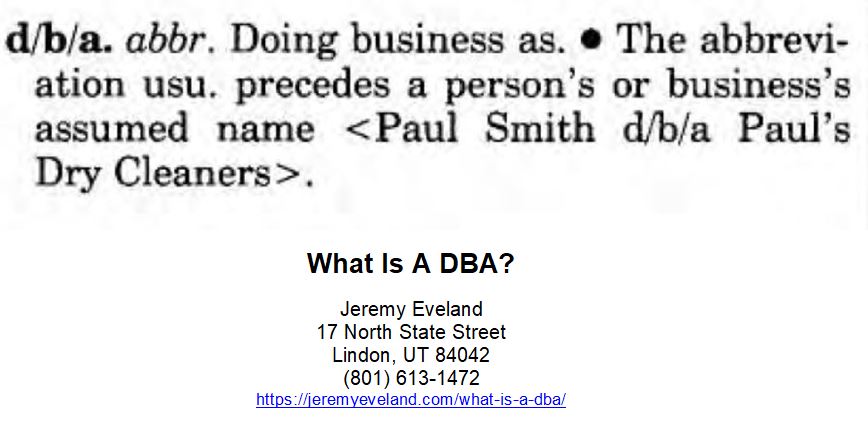-
Attorney at Law
“Run your business with confidence – success is just around the corner!”
Introduction
Running a business can be an incredibly rewarding experience. It can also be a daunting task, as it requires a great deal of planning, hard work, and dedication. It is important to understand the basics of running a business, such as understanding the legal requirements, developing a business plan, and managing finances. Additionally, it is important to have a clear vision of what you want to achieve and how you plan to get there. With the right knowledge and resources, you can create a successful business that will bring you financial and personal satisfaction.
How to Create a Business Plan for Your Startup
Creating a business plan for your startup is an important step in launching a successful business. A business plan is a document that outlines your business goals, strategies, and financial projections. It serves as a roadmap for your business and helps you stay organized and focused on achieving your goals.
Before you begin writing your business plan, it’s important to understand the components of a business plan and the information you’ll need to include. A business plan typically includes an executive summary, a company description, a market analysis, a competitive analysis, a product or service description, a marketing plan, an operations plan, a financial plan, and an appendix.
The executive summary is the first section of your business plan and should provide an overview of your business, its goals, and its strategies. It should also include a brief description of your target market and your competitive advantage.
The company description should provide an overview of your business, including its history, mission statement, and legal structure. It should also include information about your management team and any key personnel.
The market analysis should provide an overview of the industry you’re entering and the size of your target market. It should also include information about your competitors and their market share.
The competitive analysis should provide an overview of your competitors and their strengths and weaknesses. It should also include information about how you plan to differentiate your business from your competitors.
The product or service description should provide an overview of the products or services you plan to offer and how they will meet the needs of your target market.
The marketing plan should provide an overview of your marketing strategies and tactics. It should include information about your pricing strategy, promotional activities, and distribution channels.
The operations plan should provide an overview of your business operations, including your production process, inventory management, and quality control.
The financial plan should provide an overview of your financial projections, including your income statement, balance sheet, and cash flow statement.
The appendix should include any additional information that is relevant to your business plan, such as resumes, contracts, and other documents.
Creating a business plan for your startup is an important step in launching a successful business. By taking the time to create a comprehensive business plan, you can ensure that your business is well-positioned for success.
The Benefits of Outsourcing for Small Businesses
Outsourcing is a great way for small businesses to save money and increase efficiency. By outsourcing certain tasks, small businesses can focus on their core competencies and reduce overhead costs. Here are some of the benefits of outsourcing for small businesses.
Cost Savings: Outsourcing can help small businesses save money by reducing labor costs. By outsourcing certain tasks, small businesses can avoid the costs associated with hiring and training employees. Additionally, outsourcing can help small businesses reduce overhead costs such as office space, equipment, and supplies.
Increased Efficiency: Outsourcing can help small businesses increase efficiency by allowing them to focus on their core competencies. By outsourcing certain tasks, small businesses can free up time and resources to focus on their core business activities. Additionally, outsourcing can help small businesses reduce the amount of time spent on administrative tasks, allowing them to focus on more important tasks.
Access to Expertise: Outsourcing can provide small businesses with access to expertise that they may not have in-house. By outsourcing certain tasks, small businesses can access the expertise of professionals who specialize in the task at hand. This can help small businesses save time and money by avoiding the need to hire and train employees.
Flexibility: Outsourcing can provide small businesses with the flexibility to scale up or down as needed. By outsourcing certain tasks, small businesses can adjust their operations to meet changing demands. This can help small businesses remain competitive in a rapidly changing market.
Outsourcing can be a great way for small businesses to save money and increase efficiency. By outsourcing certain tasks, small businesses can focus on their core competencies and reduce overhead costs. Additionally, outsourcing can provide small businesses with access to expertise and the flexibility to scale up or down as needed. For these reasons, outsourcing can be a great option for small businesses looking to save money and increase efficiency.
Strategies for Growing Your Business in a Competitive Market
1. Develop a Unique Selling Proposition: A unique selling proposition (USP) is a statement that describes how your business is different from your competitors. It should be clear, concise, and memorable. Your USP should be used in all of your marketing materials to help you stand out from the competition.
2. Focus on Quality: Quality is key in a competitive market. Make sure that your products and services are of the highest quality and that they meet the needs of your customers. This will help you build a loyal customer base and increase your chances of success.
3. Utilize Social Media: Social media is a powerful tool for businesses. It can help you reach a wider audience, build relationships with customers, and increase brand awareness. Make sure to use social media strategically to maximize its potential.
4. Offer Incentives: Offering incentives such as discounts, free shipping, or loyalty programs can help you attract new customers and retain existing ones.
5. Invest in Advertising: Advertising is a great way to reach potential customers and increase brand awareness. Invest in targeted advertising campaigns to ensure that your message reaches the right people.
6. Network: Networking is an important part of growing your business. Attend industry events, join professional organizations, and build relationships with other business owners. This will help you gain valuable insights and make valuable connections.
7. Stay Up-to-Date: Staying up-to-date on industry trends and developments is essential in a competitive market. Make sure to stay informed and adjust your strategies accordingly.
8. Invest in Your Employees: Investing in your employees is key to success. Make sure to provide them with the necessary training and resources to help them do their jobs effectively. This will help you create a productive and motivated workforce.
9. Focus on Customer Service: Providing excellent customer service is essential in a competitive market. Make sure to respond to customer inquiries quickly and efficiently and provide them with the best possible experience.
10. Analyze Your Competitors: Analyzing your competitors can help you identify their strengths and weaknesses and develop strategies to gain an edge over them.
Tips for Managing Cash Flow in Your Business
1. Create a Cash Flow Forecast: A cash flow forecast is a tool that helps you predict how much money you will have coming in and going out of your business. It is important to create a cash flow forecast to help you plan for the future and manage your cash flow.
2. Monitor Your Cash Flow: It is important to monitor your cash flow on a regular basis. This will help you identify any potential problems and take corrective action before they become too serious.
3. Manage Your Accounts Receivable: Make sure you are collecting payments from customers in a timely manner. This will help you maintain a healthy cash flow.
4. Manage Your Accounts Payable: Make sure you are paying your bills on time. This will help you maintain a healthy cash flow and avoid late fees and penalties.
5. Negotiate Payment Terms: Negotiate payment terms with your suppliers and customers to help you manage your cash flow.
6. Utilize Short-Term Financing: If you need additional funds to manage your cash flow, consider short-term financing options such as lines of credit or invoice factoring.
7. Reduce Unnecessary Expenses: Review your expenses and look for ways to reduce or eliminate unnecessary expenses. This will help you free up cash flow.
8. Increase Your Prices: If you are able to increase your prices, this will help you generate more revenue and improve your cash flow.
9. Take Advantage of Tax Breaks: Make sure you are taking advantage of all available tax breaks to help you manage your cash flow.
10. Seek Professional Advice: If you are having difficulty managing your cash flow, seek professional advice from an accountant or financial advisor.
The Benefits of Investing in Employee Training for Your Business
Investing in employee training is an important part of any successful business. Training helps employees develop the skills and knowledge they need to perform their jobs effectively and efficiently. It also helps to create a positive work environment, which can lead to increased productivity and improved customer service. Here are some of the key benefits of investing in employee training for your business.
1. Improved Productivity: Training helps employees become more efficient and productive. By providing employees with the skills and knowledge they need to do their jobs, they can complete tasks more quickly and accurately. This can lead to increased productivity and improved customer service.
2. Increased Employee Retention: Training can help to create a positive work environment, which can lead to increased employee retention. Employees who feel valued and appreciated are more likely to stay with the company for longer.
3. Improved Employee Morale: Training can help to create a sense of pride and accomplishment among employees. This can lead to improved morale, which can result in increased productivity and improved customer service.
4. Reduced Costs: Training can help to reduce costs associated with hiring and training new employees. By providing existing employees with the skills and knowledge they need to do their jobs, businesses can save money on recruitment and training costs.
5. Increased Profits: Training can help to increase profits by improving employee productivity and customer service. This can lead to increased sales and improved customer satisfaction, which can result in increased profits.
Investing in employee training is an important part of any successful business. Training helps employees develop the skills and knowledge they need to perform their jobs effectively and efficiently. It also helps to create a positive work environment, which can lead to increased productivity and improved customer service. By investing in employee training, businesses can benefit from improved productivity, increased employee retention, improved employee morale, reduced costs, and increased profits.
Q&A
Q1: What are the most important things to consider when starting a business?
A1: The most important things to consider when starting a business are: researching the market, creating a business plan, securing financing, registering the business, and finding the right location. Additionally, it is important to consider the legal structure of the business, the tax implications, and the necessary licenses and permits.
Q2: What are the benefits of running a business?
A2: The benefits of running a business include the potential for financial gain, the ability to be your own boss, the potential to make a positive impact on the community, and the opportunity to pursue your passion. Additionally, running a business can provide a sense of accomplishment and pride.
Q3: What are the risks of running a business?
A3: The risks of running a business include the potential for financial loss, the potential for legal issues, the potential for failure, and the potential for stress and burnout. Additionally, running a business can require a significant amount of time and effort.
Q4: What are the most important skills for running a business?
A4: The most important skills for running a business include financial management, marketing, customer service, problem-solving, and communication. Additionally, it is important to have strong organizational and time management skills.
Q5: What resources are available to help with running a business?
A5: There are many resources available to help with running a business, including online courses, business mentors, business advisors, and local business support organizations. Additionally, there are many books and websites dedicated to helping entrepreneurs start and run successful businesses.
Running a Business Consultation
When you need help with Running a Business call Jeremy D. Eveland, MBA, JD (801) 613-1472 for a consultation.
Jeremy Eveland
17 North State Street
Lindon UT 84042
(801) 613-1472
Related Posts
Business Succession Lawyer Bountiful Utah
Concrete Pumping Business Lawyer



















